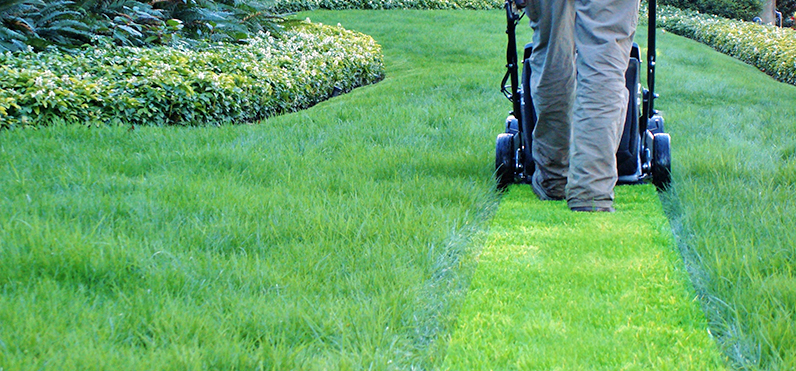The Land Court issued a recent decision denying a property owner’s motion for a preliminary injunction in Geiger v. Needham Miller, LLC, No. 20 MISC 000269 (JSDR), 2020 WL 4436449 (Mass. Land Ct. Aug. 3, 2020). At issue in this case was an approximately 270 square foot area of the Defendant LLC’s property (“the Disputed Area”). The Plaintiff claimed ownership by virtue of adverse possession based on his use of the Disputed Area as an extension of his lawn. In denying the Plaintiff’s motion for preliminary injunction, the Land Court held that the Plaintiff’s use of the Disputed Area, consisting solely of lawn maintenance, was not open, adverse, and exclusive to satisfy a claim for adverse possession.
In denying the Plaintiff’s motion for preliminary injunction, the Land Court held that the Plaintiff’s use of the Disputed Area, consisting solely of lawn maintenance, was not open, adverse, and exclusive to satisfy a claim for adverse possession.
The Plaintiff in this case continuously resided on his property since approximately March 1990. Since such time, the Disputed Area was marked by a shrub, tree, and a planting bed. The Plaintiff alleged that at all times during his ownership, the Defendant LLC and its predecessors occupied and maintained the planting bed, while the Plaintiff occupied and maintained all the land to the right of the planting bed, to the exclusion of all others. Specifically, the Plaintiff alleged that he and professional landscapers engaged in the following acts on the Disputed Area: weekly moving during the growing season, applying fertilizer, seeding, seasonal clearing of leaves, removal of debris after storms, and seasonally watering multiple times per week. The Plaintiff also engaged professional arborists who had full access to and moved across the Disputed Area to tend to trees on the Plaintiff’s property.
To support his position, the Plaintiff relied upon the 2019 Appellate Court decision in Miller v. Abramson, 95 Mass. App. Ct. 828 (2019). In Miller, the Appeals Court affirmed a judgment declaring that the Millers had acquired a thin triangle of land, approximately 492 square feet in size, by adverse possession. The Millers and their landscaping company mowed the lawn weekly and performed typical residential landscaping work within the disputed area. On appeal, the Abramson’s argued that lawn maintenance was insufficient to establish adverse possession under Massachusetts law. The Appeals Court disagreed,1 stating that Massachusetts law is more nuanced than that, and noted that “the context supplied by the surrounding landscape is significant in an adverse possession case — a use that is sufficient to establish ownership in a densely populated neighborhood may be inadequate in an isolated, wooded setting.” Id. at 833. Relying upon this premise, the Appeals Court held that the Millers engaged in typical suburban lawncare that gave rise to ownership.
The Defendant LLC argued that although lawn maintenance has been a factor in finding adverse possession, the courts have generally relied on factors in addition to lawn maintenance to support an adverse possessor’s claim. The Land Court agreed with the Defendant LLC and held the Plaintiff’s lawn maintenance was not open and adverse. The court wrote, “in every case that this court has reviewed, including those cited in Mullins, factors in addition to lawn maintenance support the adverse possessor’s claim.”
The court also held that the Plaintiff’s lawn maintenance was not an exclusive use, further supporting the court’s denial of injunctive relief. A use is exclusive if such use excludes not only the owner of record title, but also all third parties to the extent that the owner would have excluded them. Here, the Plaintiff did not take any steps that would have precluded the use of the Disputed Area by others. In its analysis, the court specifically noted that the Plaintiff did not fence off the Disputed Area, erect any structures on the Disputed Area, plant trees or shrubs, or incorporate the Disputed Area into his irrigation system. Further, the Defendant LLC’s predecessor had engaged a landscaping company to perform spring and fall cleanups every year from 2003 through 2018. The cleanup included the Disputed Area where the landscaping company blew leaves and picked up sticks and branches on the Disputed Area. By allowing others to go on to the Disputed Area for lawn maintenance activities, the Plaintiff’s use was not exclusive.
The principal takeaway from the Geiger decision is that if you are seeking ownership by or defending a claim for adverse possession, simply mowing and yard maintenance may not be adequate to establish adverse possession due to the fact-specific nature of each property dispute. Thus, consultation with counsel in bringing and/or defending such a claim is advised.
1 In Mancini v. Spagtacular, LLC, 95 Mass. App. Ct. 836 (2019), a decision issued on the same day as Miller, the Appeals Court rejected the same argument holding that “Massachusetts jurisprudence does not establish a per se rule that mowing and yard maintenance can never be adequate to establish adverse possession.” Id. at 843.


